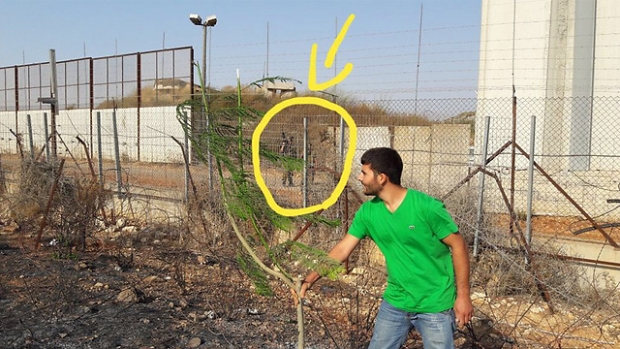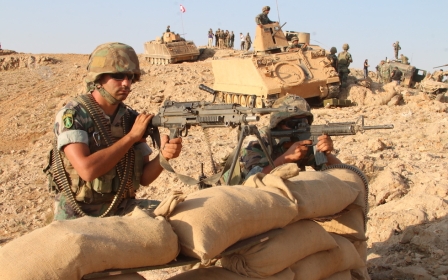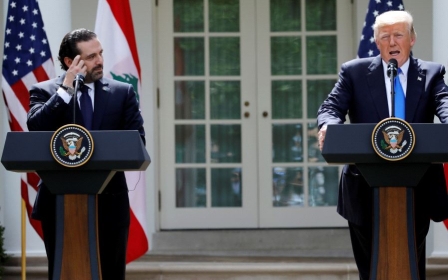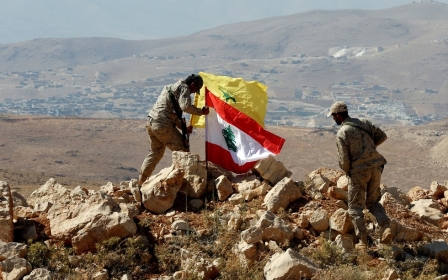'Trees scare Israel': Nasrallah sows seeds of resistance on Lebanon border

Hezbollah's leader Hassan Nasrallah has called on Lebanese to plant trees along on the borders with Israel to "scare" the enemy.
"Israel is afraid of the trees on our borders," Nasrallah said in a televised speech this week. "Wherever there is a mountain in Lebanon, wherever there is a border, plant trees."
He added that trees were "a part of the resistance, a part of protecting the country".
Two Lebanese men took the call seriously, and proceeded to plant trees along the southern border.
Ali Nazer, one of the men, uploaded pictures of the trees on social media, "in plain sight of IDF soldiers".
The two men hold a message reading "the nicest tree on the border just for you Mr Hassan Nasrallah."
Israel filed a complaint with the US Security Council in June, accusing Hezbollah of using an environmental advocacy group to set up observation outposts along the border with Israel.
They accused Hezbollah was using an organisation which plants trees as a front for intelligence collection.
"We will continue to plant green trees along the borders. Let Israel complain to the Security Council," Nasrallah said, adding that they had been complaining to the Security Council for 60 years.
Israel claimed that these 'posts' were in violation of the UN ceasefire which ended the 2006 war with Hezbollah.
Israel's US ambassador wrote in a letter to the secretary general's office, complaining that the international community "cannot continue to turn a blind eye to Hezbollah's flagrant violations" of UN resolutions.
The UN later rejected these allegations.
New MEE newsletter: Jerusalem Dispatch
Sign up to get the latest insights and analysis on Israel-Palestine, alongside Turkey Unpacked and other MEE newsletters
Middle East Eye delivers independent and unrivalled coverage and analysis of the Middle East, North Africa and beyond. To learn more about republishing this content and the associated fees, please fill out this form. More about MEE can be found here.





